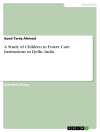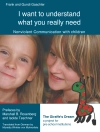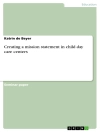Interpreting the voices of under three year olds is central to early childhood education. Yet entering into their life-worlds is fraught with challenges and unrealised possibilities. This ground-breaking book generates a dialogue about the multiple ways researchers have exploited a range of methods for approaching, accessing, understanding and interpreting infant voice. Each chapter explores the kinds of ethical considerations and dilemmas that may arise in this process. The book itself represents a chorus of international voices (researchers, children, teachers and parents), all adding to a discussion about various circumstances, dilemmas and possibilities involved in doing research with our youngest. This book is an essential read for researchers and teachers alike who seek to ‘listen’ and ‘see’ very young children with fresh ears and eyes.
Cuprins
Foreword.- Prologue.- 1. Introduction: Giving Words to Children’s Voices in Research.- 2. Two Steps Back: Using Bourdieu’s Theory of Practice to Explore Observer Identity and Presence.- Commentary.- 3. Investigating Morality in Toddler’s Life-worlds.- Commentary.- 4. “Seeing” the toddler: Voices or Voiceless.- Commentary.- 5. Embodied Voices and Voicing Embodied Knowing: Accessing and Developing Young Children’s Aesthetic Movement Skills.- Commentary.- 6. “Visual Vivencias”: A Cultural-Historical Theorisation of Researching with Very Young Children.- Commentary.- 7. Taking a “Generous” Approach in Research with Young Children.- Commentary.- 8. “Lived Observation”: The Experience of Being a Body-Subject-Observer Among Body-Subject-Toddlers.- 9. Conclusion: Lessons Learnt and Future Provocations.- Index.












